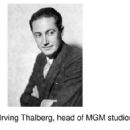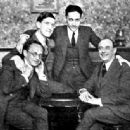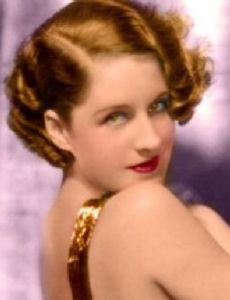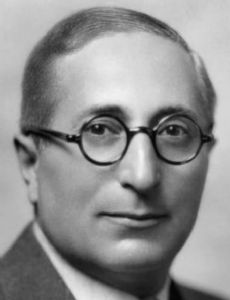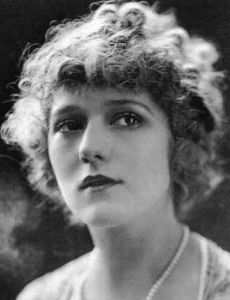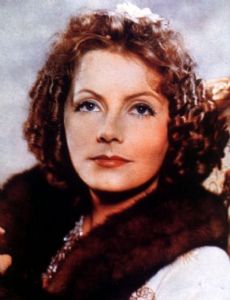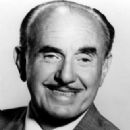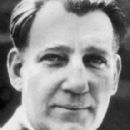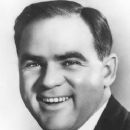Irving Grant Thalberg (May 30, 1899 – September 14, 1936) was an American film producer during the early years of motion pictures. He was called "The Boy Wonder" for his youth and ability to select scripts, choose actors, gather production staff, and make profitable films, including Grand Hotel, China Seas, Camille, Mutiny on the Bounty and The Good Earth. His films carved out an international market, "projecting a seductive image of American life brimming with vitality and rooted in democracy and personal freedom", states biographer Roland Flamini.
You can find people similar to Irving Thalberg by visiting our lists American anti-communists and USC School of Cinematic Arts faculty.
| Full name at birth | Irving Grant Thalberg
|
||
| Claim to fame | Head of production at MGM Studio Coauthored the “Production Code,” guidelines for morality followed by all studios.
|
||
| Date of birth | 30 March 1899
|
||
| Place of birth | Brooklyn, New York
|
||
| Date of death | 14 September 1936
|
||
| Age | 37 (age at death)
|
||
| Place of death | Santa Monica, California
|
||
| Cause of death | Congenital Heart Disease/Pneumonia
|
||
| Resting place | Forest Lawn Memorial Park, Glendale, California
|
||
| Occupation | Film Producer
|
||
| Occupation category | |||
| Nationality |
PERSONAL DETAILS
| Height | 5' 11" (180 cm)
|
||
| Build | |||
| Hair color | |||
| Eye color |
|
||
| Gender | |||
| Ethnicity | |||
| Sexuality | |||
| Religion | |||
| Zodiac sign | |||
| Distinctive feature |
|
||
| Pets |
|
ADDITIONAL DETAILS
| High school |
|
||
| University |
|
||
| Talent agency |
|
||
| Political affiliation |
|
||
| Political party |
|
- Is portrayed by Robert Evans in Man of a Thousand Faces (1957)
- The father of two daughters, Metro-Goldwyn-Mayer Vice President-Production Louis B. Mayer originally thought of Thalberg, his production chief, as a son, but Thalberg's ambitions and his view of himself as the man behind the success of MGM eventually brought them into conflict. After Thalberg's 1933 heart-attack forced the young executive to take a long vacation, Mayer introduced a producer system he likened to a college of cardinals to replace Thalberg as the central producer. When Thalberg returned to MGM, he became just an ordinary producer, albeit one who had first choice on projects and MGM resources, including its stars, due to his closeness to Nicholas Schenck, the president of MGM corporate parent Loews's Inc. Schenck, who was the true power and ultimate arbiter at the studio, usually backed up Thalberg. Some Hollywood observers believe that Mayer was relieved by Thalberg's untimely death, though he professed a great deal of grief publicly and likely was saddened by his former mentor's demise as Thalberg had been instrumental in building MGM into the greatest studio in Hollywood and the world.
- Contracted rheumatic fever at the age of 17, and the prognosis was negative. His mother, Henrietta, ignored the physicians' opinions and sent Irving back to high school to finish up and get his diploma.
- After director King Vidor complained to Thalberg that he was tired of shooting pictures that played in theaters for just one week, he told him about a new kind of realistic war movie he had envisioned. Thalberg was enthusiastic about Vidor's vision, and tried to buy the rights to the hit Broadway play "What Price Glory?" co-written by Maxwell Anderson and World War I Marine veteran Laurence Stallings. Since the rights to the popular anti-war play had already been acquired, he hired Stallings to come to Hollywood and write a screenplay for the new, realistic war picture that Vidor had dreamed about making. Stallings came up with The Big Parade (1925) an anti-war film that dispensed with traditional concepts of heroism, focusing instead on a love story between a Yank soldier and a French girl. After Vidor completed principal photography, Thalberg took the rough cut and previewed it before live audiences in Colorado. Although the audiences responded favorably, Thalberg decided to expand the scope of the picture as Vidor had created a war picture without many scenes of war. He had Vidor restage the famous marching Army column sequence with 3,000 extras, 200 trucks and 100 airplanes, adding about $45,000 to the negative cost of the film. After Vidor moved on to another project, Thalberg had other battle scenes shot by director George Hill. The result was a classic, a major hit that proved to be M.G.M.'s most profitable silent picture. "The Big Parade" was an example of Thalberg's perfectionism as a managing producer.
- After a preview of the Marie Dressler-Wallace Beery picture "Tugboat Annie" (1933), Thalberg asked director Mervyn LeRoy if a scene could be improved by making Beery's shoes squeak. LeRoy agreed, but detailed how it would be economically prohibitive to reshoot the scene as the sets had been dismantled and the cast had dispersed. Thalberg responded, "Mervyn, I didn't ask you how much it would cost, I asked you whether it would help the picture." The scene was reshot, an example of Thalberg's perfectionism.
More...
This page is the FamousFix profile for Irving Thalberg. Content on this page is contributed by editors who belong to our editorial community. We welcome your contributions... so please create an account if you would like to collaborate with other editor's in helping to shape this website.
On the Irving Thalberg page you will be able to add and update factual information, post media and connect this topic to other topics on the website. This website does skew towards famous actors, musicians, models and sports stars, however we would like to expand that to include many other interesting topics.

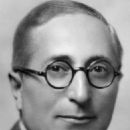
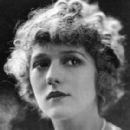
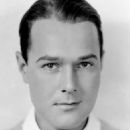

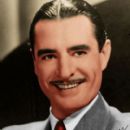
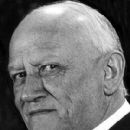
![Norma Shearer and Irving Thalberg - Yours Retro Magazine Pictorial [United Kingdom] (December 2020)](http://img3.bdbphotos.com/images/130x130/2/y/2y1kzli3c9iklc1k.jpg?skj2io4l)
